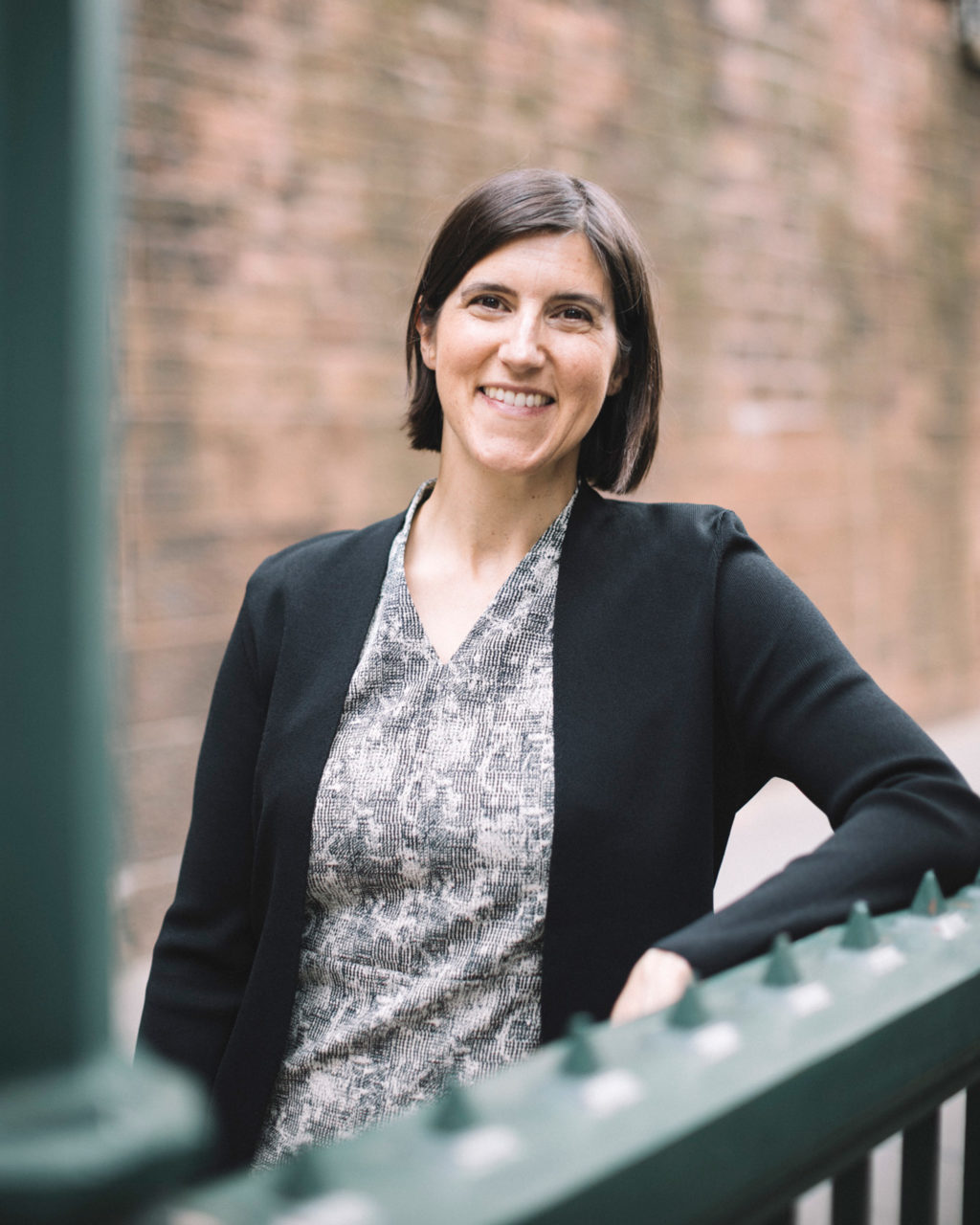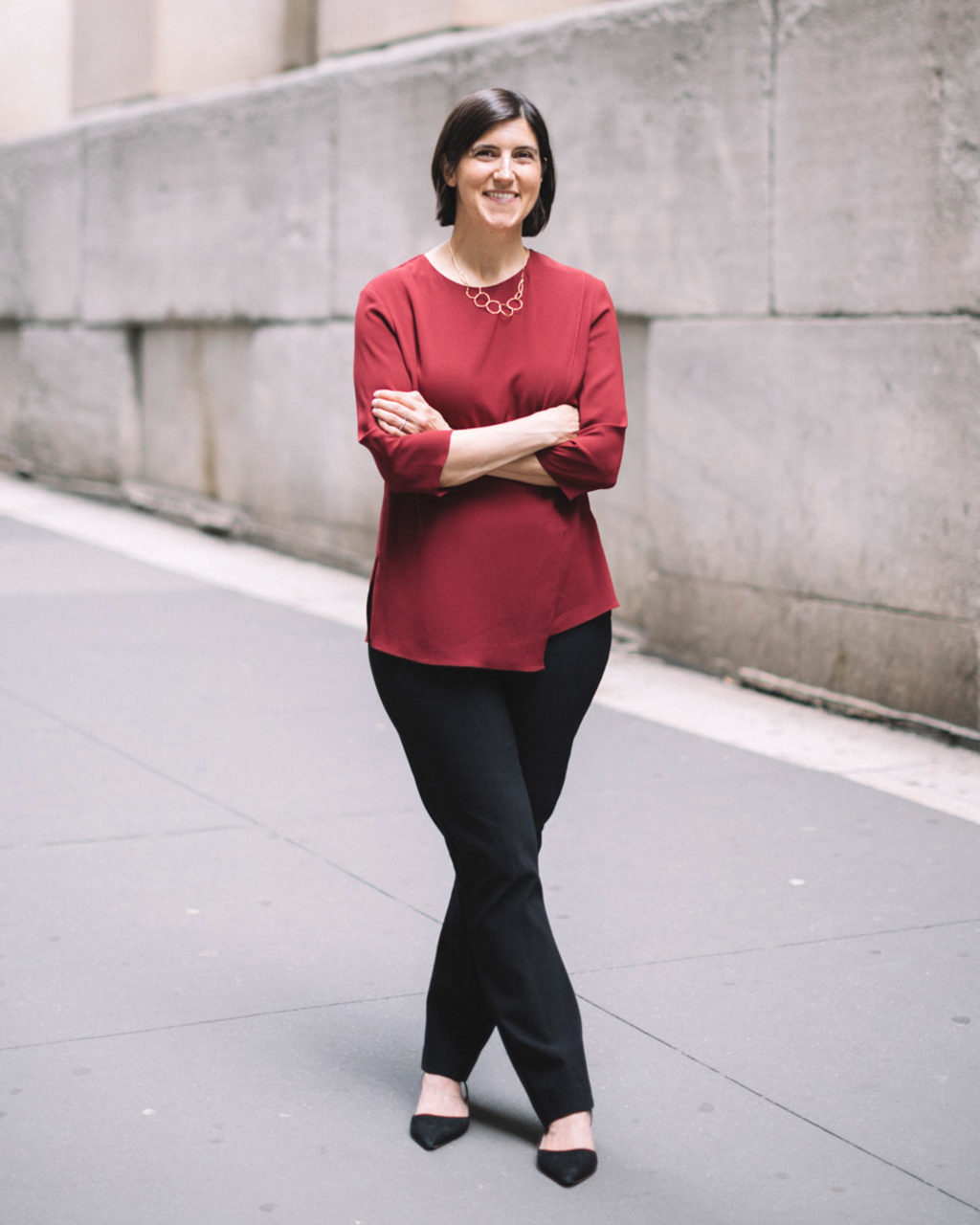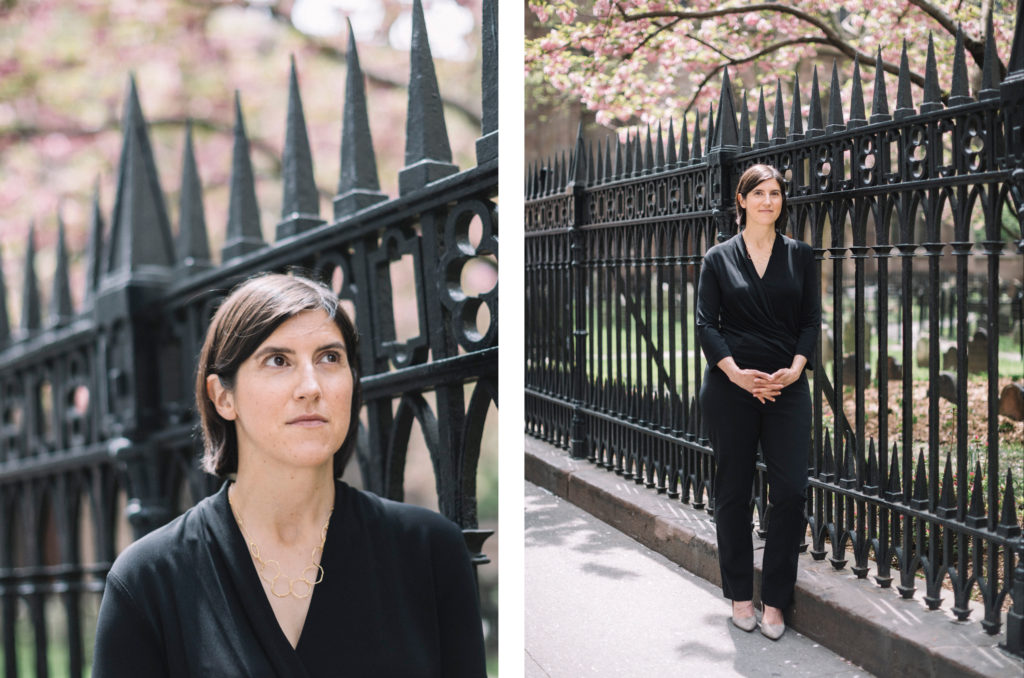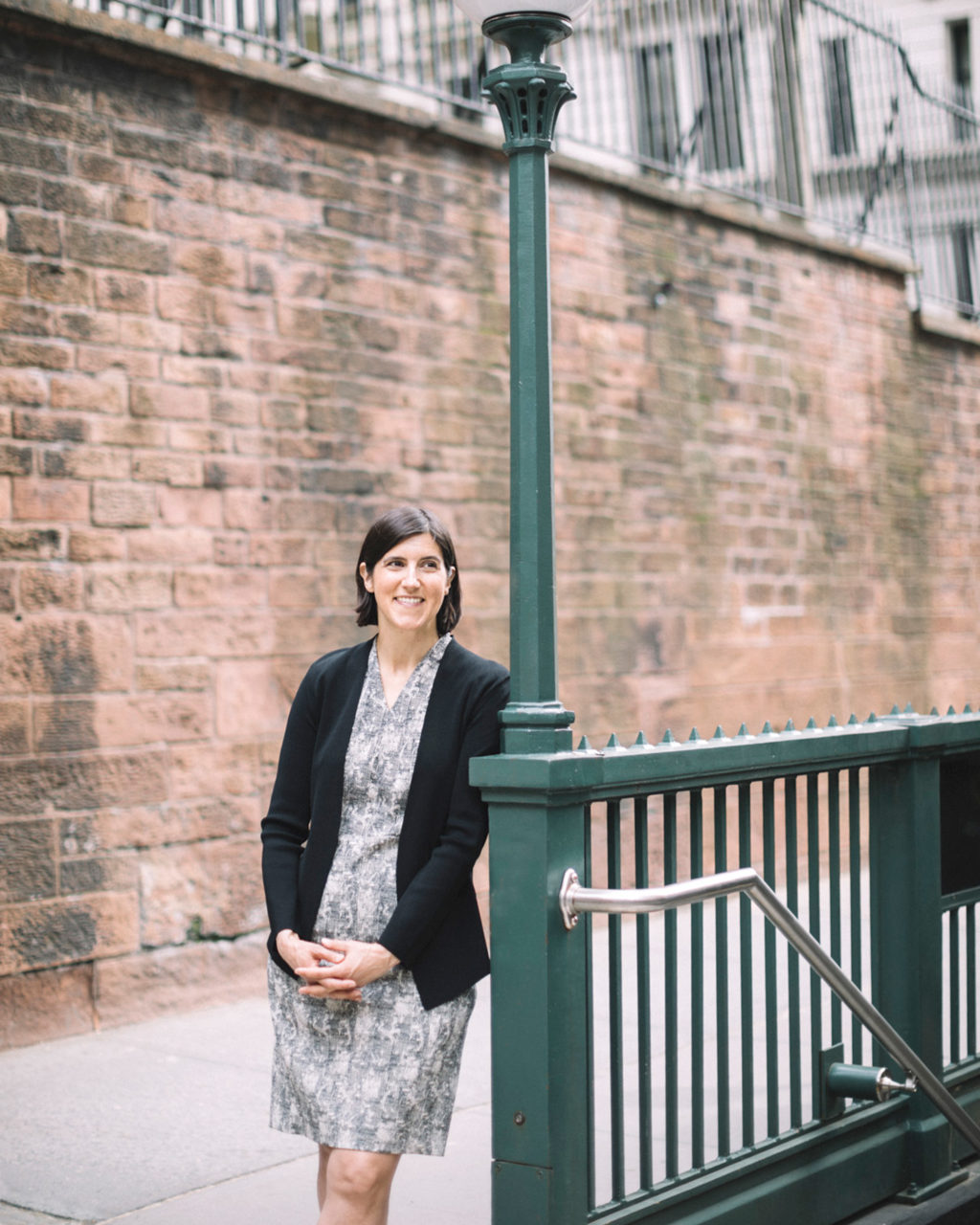Author Curtis Sittenfeld: “My Writing Identity Is Different From Who I Am in the Rest of My Life”
May 24, 2018 | Filed in: Woman of the Week
Few contemporary novelists have straddled literary cachet and mainstream popularity with the grace of Curtis Sittenfeld, who burst onto the bestseller list with her debut novel, Prep, in 2005. Since then, she has produced a steady stream of smart, culturally incisive work, including 2008’s American Wife (a fictionalized take on first lady Laura Bush’s life and marriage) and 2016’s Eligible (a witty, modern-day version of Pride and Prejudice). Her latest book, You Think It, I’ll Say It, is a collection of ten short stories, several of which have also been published in The New Yorker. A graduate of Stanford University and the Iowa Writers’ Workshop, Sittenfeld now lives in St. Louis with her husband and two children. She recently visited the MM offices in New York, where we discussed writing rituals, the role of luck, and the motivating powers of Post-It notes.
WHEN I WAS IN COLLEGE, I told people I wanted to be a social worker. Meanwhile, I was an English major, had internships with magazines and newspapers, and wrote for the college literary magazine. I wanted to want to be a social worker, but I didn’t really want to be a social worker. I wanted to feel as if I was making the world at least a little better, in a tangible way. That’s a hard thing to quantify when you’re a fiction writer. It was only in the last five years or so that I stopped occasionally dreaming that I would go to social work school.
AFTER COLLEGE, I GOT A JOB AS A REPORTER at Fast Company, which was then based in Boston. Because it was a fairly young magazine, I had opportunities to write at age 22. If it had been a more established magazine, I probably would have been someone’s assistant. My editors knew what I could and couldn’t do; they would assign me articles about colorful characters, not nitty-gritty business issues. That job really taught me the importance of meeting a deadline. When it was time to turn it in, you turned it in. I was there for a little less than two years, and then got my MFA.

Curtis wears the Aditi dress in crackle and the Woolf jardigan in black.
I’M PRETTY WEIRD FOR A NORMAL PERSON, but shockingly normal for a writer. I’ve been a weirdo my entire life, but if you sell enough novels, people will think that you’re endearingly eccentric instead of that Debbie Downer friend who’s making depressing observations about life and who doesn’t like going to parties. It’s funny—I do think that my writing identity is different from who I am in the rest of my life. As a writer, I’m very persistent and willing to take chances, but in most other areas, I’m pretty cautious. For example, when I was single, I took dating rejection extremely personally. I think I have more confidence as a writer than as a human being.
I DON’T THINK IT’S UN-FEMINIST OR FALSELY MODEST to say that I have been lucky. The first fact of my luck is that I received an excellent education from the moment I entered preschool to the time I finished graduate school. I was born into a stable family. I did not graduate from college with student loans; my parents paid for my college education. If you graduate deeply in debt, you might choose a professional path that has more stability. It’s quite a privileged perspective to think that being a novelist is a viable career.
THAT SAID, I NEVER THOUGHT THAT BEING A NOVELIST would be my full-time job. Writers have to be prepared for writing to not be their primary source of income—unless you’re sitting on a vast fortune, which I was not. When I was starting my MFA program with the explicit purpose of finishing a novel, I thought, “Well, I’ll teach or I’ll be a journalist or something like that.” For my first novel, Prep, I signed a contract in 2003 and I got a $40,000 advance. I had spent three and a half years writing it, so you can do the math—I could not have supported myself getting $40,000 every three and half years. But after Prep became a bestseller, I was offered a two-book contract for a certain amount of money that I won’t specify, but that I could live on, so writing could be my full-time job. I remember realizing, “I don’t need to write freelance articles to subsidize my fiction—my fiction now pays for itself!” But I also do think of myself as two unsuccessful novels away from that not being true. There aren’t many guarantees in any field, but there are writers who sell a lot of books in a particular moment, and then six years pass and no one knows who they are.

Curtis wears the Bourgeois blouse in pomegranate, the Foster pant in black, and the Helene necklace.
I ENJOY AND DREAD all aspects of writing a novel. I think the most difficult part is the organizational aspect, where you’re dealing with hundreds of pages. Sometimes I think, “Okay, wait. Which version is this? Did I put these changes in?” I’ll write part of one section and then get bored and confused so I jump to another section, but then I get bored and confused again; where do I re-enter it? I’ve learned that when you feel shut out of your own manuscript, sometimes it’s not really a content issue—it’s an organization issue. It could even be something totally unrelated, like a family member who calls daily at 9:30 a.m., which is the time I plan to start writing. Things like that affect your work, but they’re different from problems like, “I don’t know what to make this character do.”
ON A TYPICAL DAY, I TAKE MY TWO KIDS to their elementary school and then I come back to the house, where I have an office. I sit down and try to write fiction for a few hours before lunch. Then, if I have other stuff like errands or emails or whatever, I do that in the afternoon. Of course, someone could look at my Twitter feed and see that I retweeted something at 10:13 a.m., so clearly my process is not quite as pure as I wish. But my goal, or my default daily structure, is to write fresh material in the morning, when my brain is the sharpest. I might come back later in the afternoon and do more revisions or outlines for things that will happen later in a novel. But writing a new scene is what requires the most concentration.

Curtis wears the Deneuve top in black, the Foster pant in black, and the Helene necklace.
I ALWAYS KEEP A POST-IT NOTE next to my computer, and every day I write the date, the time I start writing, and the page that I am starting from. I might write two pages in a day of work, which feels like nothing, but if I write for five days a week and then I’ve written 10 pages, that feels like something. So it’s a ritual, a way of holding myself accountable—my harsh taskmaster, the Post-It note! It’s also proof that, little by little, you move forward.
WHENEVER I START WRITING, I have a general idea of where I’m headed. But I definitely surprise myself along the way, and I’m very willing to deviate from my own outline. That’s the fun part. My early drafts are pretty rough and then I go back and smooth them out, over and over. I almost never send a piece of writing to someone before there’s a full first draft. There’s just a level of messiness that I won’t unleash on another person. I also don’t bounce ideas off people that much. I just write it and see how it turns out.
PART OF BEING A WRITER IS KNOWING what feedback to accept and what feedback to ignore. An early reader should be somebody who helps you make your work the best version of what it can be, instead of telling you to change it so it’s more like their work, or more like their ideal version of a book. They don’t need to be similar to you, but they do need to have sensibilities that are compatible with your own. Your early readers are treasures. I always show my books to my two sisters, usually later on in the editing process. They are both intelligent but busy, and they’re not huge readers, so they are good barometers for me. If my sister who normally reads two books a year says, “I sat down to read a few pages of your book, and then five hours later I’d finished it,” then I think, “Okay. This is a really good sign.” Or if she says, “This part seemed kind of boring,” I listen to her. Their feedback is helpful partly because they’re not deep inside the world of publishing.

Curtis wears the Aditi dress in crackle and the Woolf jardigan in black.
I WAS A SOMEWHAT AWKWARD TEENAGER, and at my core, I’m not super-social. But a lot of my angst has just aged out of me, like I got too tired to be so angst-y. I’m more solitary than shy. It’s not that being around other people makes me nervous; it’s more that I like being by myself. When I’m by myself, I’m almost never bored.
I DON’T THINK I HAVE IMPOSTER SYNDROME, but the version of me that gets introduced at bookstores sounds like she really has her act together, and the version of me that’s driving around the suburbs of St. Louis does not always feel that way. In some ways, to me, writing a book is an opportunity to put my best foot forward, and make things neat and tidy. A book is this distilled, packaged object—and life is not. Life is messy.
WRITING FICTION IS THE THING I WAS MEANT TO DO. It engages my brain, and it’s the prism through which I see the world. But I do occasionally have underlying anxiety that it’s indulgent to sit in a room by myself and make up stories. For example, when I encounter a nurse in a hospital, I think, Wow, that person has really practical skills, and he or she can affect someone else’s quality of life in such an important way that I can’t. One thing that I sometimes do is look at the bios of people who follow me on Twitter. It might be someone who works in public health in another country, or a pediatrician. And I think, Well, maybe my books provide pleasure for someone who does a job where they actively help other people. That person needs to recharge their batteries and they do it by reading fiction. Similarly, I take a lot of pleasure in other people’s books and movies and TV shows. I’m glad that others create art, so I hope that people are glad that I create it too.
Photographs by Rich Gilligan.





